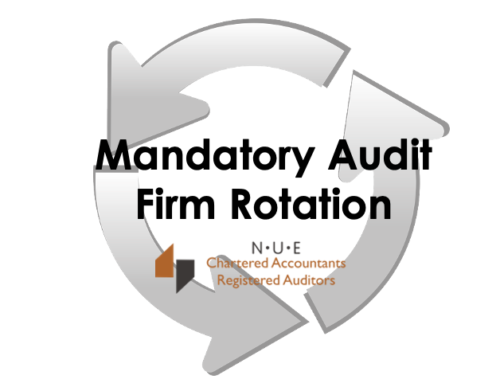Cash flow is the lifeblood of any business, and effective bookkeeping is essential to managing it. Cash flow management is particularly important in South Africa, where small and medium-sized enterprises (SMEs) make up a significant proportion of the economy. In this thought leadership article, we will explore various tips and strategies that businesses can implement to manage their cash flow effectively.
Understanding Cash Flow
Cash flow refers to the movement of money into and out of a business. It is important to understand cash flow because it affects a company’s ability to pay its bills, invest in new opportunities, and meet its obligations to creditors and shareholders. A cash flow statement is a financial report that shows the inflow and outflow of cash during a specific period. In South Africa, companies are required to submit cash flow statements to the Companies and Intellectual Property Commission (CIPC) as part of their annual financial statements.
Tips for Effective Bookkeeping
Accurate Record-Keeping Practices
Accurate record-keeping is the foundation of effective bookkeeping. This involves recording all financial transactions, including sales, purchases, and expenses, in a timely and accurate manner. In South Africa, businesses must keep accurate records for tax purposes, and the South African Revenue Service (SARS) may request to see these records at any time.
Use of Accounting Software
Accounting software is a valuable tool for managing cash flow. It allows businesses to track income and expenses, generate financial reports, and automate certain tasks, such as bank reconciliation. In South Africa, there are a variety of accounting software options available, including Sage, Xero, and Quickbooks.
Segregating Personal and Business Expenses
One common mistake that small business owners make is mixing personal and business expenses. This can make it difficult to track business expenses accurately and can lead to tax complications. In South Africa, businesses are required to keep separate records for personal and business expenses.
Regular Bank Reconciliation
Bank reconciliation is the process of matching the transactions in a business’s bank statement with its accounting records. This helps to identify discrepancies and ensure that all transactions have been recorded accurately. In South Africa, businesses must reconcile their bank accounts regularly, and this is also a requirement for tax purposes.
Tracking Accounts Receivables and Payables
Accounts receivables refer to money owed to a business by its customers, while accounts payables refer to money owed by the business to its suppliers. Tracking these balances is important for managing cash flow and ensuring that payments are made and received on time. In South Africa, businesses can use accounting software or other tools to track these balances accurately.
Maintaining an Inventory Record
For businesses that sell products, inventory management is an important aspect of cash flow management. Maintaining an accurate inventory record helps businesses to manage stock levels, prevent stock-outs, and reduce the risk of overstocking. In South Africa, businesses can use inventory management software or spreadsheets to track inventory levels.
Tracking and Categorising Expenses
Tracking and categorising expenses is essential for understanding where a business’s money is going and for identifying areas where costs can be reduced. In South Africa, businesses must keep detailed records of expenses for tax purposes, and it is also a best practice for effective bookkeeping.
Keeping Track of Financial Statements
Financial statements, such as income statements, balance sheets, and cash flow statements, provide important information about a business’s financial performance. In South Africa, businesses are required to prepare financial statements annually, and these statements must comply with the International Financial Reporting Standards (IFRS).
Strategies for Effective Cash Flow Management
Understanding and Projecting Cash Flow Needs
To manage cash flow effectively, businesses must understand their cash flow needs and be able to project their cash flow for the future. This involves forecasting income and expenses, including planned investments or expansion, and identifying potential cash flow shortfalls. This information can be used to make informed decisions about budgeting, managing debt, and identifying opportunities for growth.
Managing Accounts Receivable
One effective strategy for managing cash flow is to ensure that accounts receivable are collected promptly. Businesses can accomplish this by setting clear payment terms, sending out invoices in a timely manner, and following up on overdue payments. In South Africa, businesses can also use factoring or invoice discounting to convert their accounts receivable into cash.
Negotiating Payment Terms with Suppliers
Businesses can also manage their cash flow by negotiating payment terms with their suppliers. This can involve extending payment terms or negotiating early payment discounts. By managing accounts payable effectively, businesses can improve their cash flow and maintain positive relationships with their suppliers.
Minimising Inventory Costs
Maintaining inventory can be a significant drain on cash flow. Businesses can minimise inventory costs by implementing effective inventory management practices, such as just-in-time inventory and lean inventory management. By reducing the amount of inventory on hand, businesses can free up cash for other purposes.
Managing Debt Effectively
Debt can be a useful tool for financing growth or making investments, but it can also put a strain on cash flow. Businesses can manage their debt effectively by negotiating favourable interest rates, consolidating high-interest debt, and prioritizing debt repayment. In South Africa, businesses can also use government-backed loan programs to access affordable financing.
Effective bookkeeping is essential for managing cash flow in South Africa. By implementing accurate record-keeping practices, using accounting software, segregating personal and business expenses, and reconciling bank accounts regularly, businesses can gain a clear understanding of their cash flow and make informed decisions about budgeting, managing debt, and identifying growth opportunities. By also utilising strategies such as managing accounts receivable, negotiating payment terms with suppliers, minimising inventory costs, and managing debt effectively, businesses can improve their cash flow and maintain a healthy financial position. Ultimately, effective cash flow management is key to the success of any business in South Africa.




